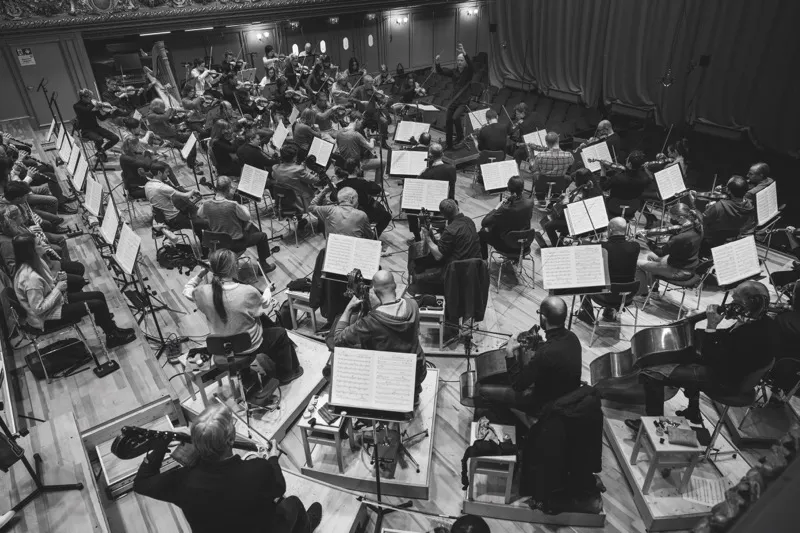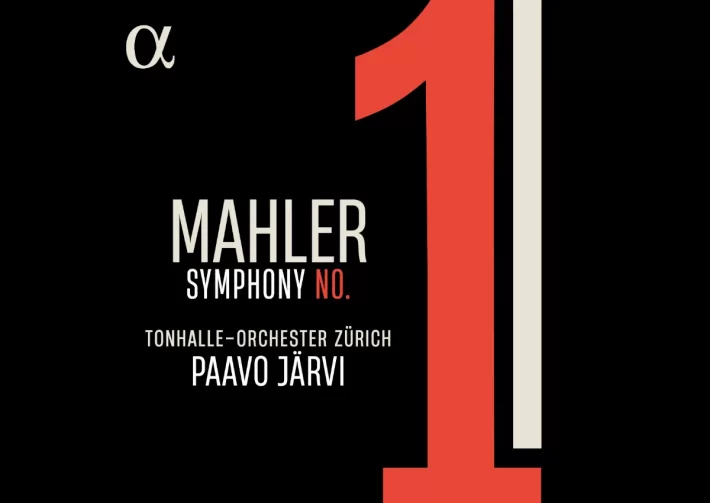This is the second release in an ongoing Mahler cycle by these forces. Their reading of the Fifth Symphony (reviewed here in March 2025) was well played but lacked the emotional grandiosity I expect in Mahler performances. I have also noted a similar emotional reticence in Järvi’s Zürich recordings of Tchaikovsky and Bruckner. His desire for orchestral precision and clarity of counterpoint all too often comes at the expense of the music’s emotional trajectory, though that is less of an issue in this new release.

The opening is suitably mysterious, and the distant trumpet fanfares are perfectly judged. Balances are transparent, enabling us to hear every strand of Mahler’s writing. The first theme (a quotation of Mahler’s Ging heut morgen über’s Feld/This morning I walked across the field) is careful and optimistic. Mahler asks that the music get imperceptibly faster (which Ádám Fischer manages perfectly in his Düsseldorfer Symphoniker/Avi recording); Järvi comes close, but there is a sudden acceleration at 3’20” (and again in the repeat of the exposition) that negates Mahler’s intended effect. I also wanted more tuba (track 3, 4’57”) at the unexpected harmonic shift, and a greater willingness to explore the darker mood and colors of the development. But there is no denying that the recapitulation brings an increased sense of freedom that drives the movement to its rambunctious and joyful conclusion.
Many conductors begin the second movement by dragging the bass line into tempo, an interpretative idea that never really works, but Järvi drags it out longer than most, and then does it again when the first section repeats (he does not, however, do it when the same material comes back after the Trio.) It all seems rather mannered, as does the opening of the Trio, in which the first few phrases are pushed and pulled about in a way that negates any sense of line. Bernstein (Sony and DG) and Fischer also employ generous rubato, yet it feels more natural and organic, whereas here it draws attention away from the music to how well the orchestra follows its conductor. Nevertheless, the playing is excellent, and we get to hear every element of the score with absolute clarity.
A solo bass plays the opening of the third movement funeral march; a few conductors now have the entire section play it, but I remain unconvinced. The canonic treatment of “Frère Jacques” in minor is excellently done, as is the first klezmer music interruption. The second section (an orchestrated version of Mahler’s Die zwei blauen Augen/The two blue eyes of my beloved song) is gently poignant, suggesting the protagonist has resigned himself to the loss of his first love (with Bernstein and Tennstedt it is a recent, more painful loss). The return of the A material is beautifully managed, but Järvi’s rushed tempo for the second Klezmer interruption again draws attention away from the music to the performance itself. A fabulous realization of this passage is found in Kocsis’s underrated Hungarian National Philharmonic recording for the BMC label (Apple Music).

Tonhalle-Orchester Zürich, Paavo Järvi (image: © Alberto Venzago)
The wounded heart’s outcry (Mahler’s description) that begins the final movement is raw, but then Järvi tamps down the storminess Mahler requests so that the acrobatic violin lines are clearly heard — I needed more wildness. The following passage, love music that prepares the protagonist for his upcoming battle, is deeply touching, conductor and orchestra fully engaged with the spirit of the music. The battle music is perfectly paced, the orchestra’s overreach into D Major suitably awe-inspiring. But the angst-ridden melody that leads to the work’s emotional climax (track 15, 2’35”) never finds the potency of readings by Bernstein, Tennstedt, and Abbado (Berlin or Lucerne). The second battle’s victory is powerful, carrying right into the Coda; here and throughout, the timpani’s use of hard sticks has a palpable galvanizing effect. Yet the unmarked bass drum crescendo heard in the final moments is unconvincing.
David Zinman recorded this symphony with the same orchestra in 2007 for RCA. Comparing the two versions, the RCA SACD recording offers considerably greater tonal heft than Alpha captures here. And some listeners may find a degree of harshness and close miking in the brass section of the newer recording, most noticeable in the climaxes of the final movement.
This is a more interesting and emotionally engaging performance than the first release in the series, yet it does not rise to the level of overall excellence heard in the other readings mentioned above. But as I have made clear, I seek out and connect to more heart-on-sleeve performances of Mahler’s music – those who find the readings of Bernstein and Tennstedt emotionally overwrought may well rate this release more highly.
Recommended Comparisons
Bernstein (Amazon | Presto) | Abbado (Amazon (DVD) | Presto)
Nézet-Séguin (Amazon | Presto) | Kocsis (Presto | Apple)

Album Details |
|
|---|---|
| Album name | Mahler – symphony No. 1 (“Titan”) |
| Label | Alpha Classics |
| Catalogue No. | ALPHA1166 |
| Artists | Tonhalle-Orchester Zürich, Paavo Järvi (conductor) |



















